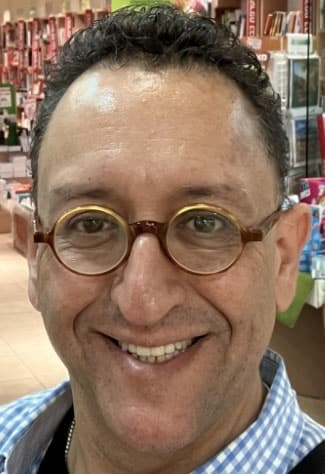My name is Isaac. You think you know me, but you really don’t.
I am stuck in between two generations, constantly overshadowed by my father, Abraham, and my son, Jacob. If you ask anyone to name the nation that eventually came from my family, they either refer to them as “the offspring of Abraham” or, more commonly, “the children of Israel.” You never hear anyone refer to this nation by my name: Isaac.
It’s not that my name isn’t mentioned in the Bible. My name actually appears 108 times, yet, virtually all of the stories where my name is mentioned and where I am involved as a character are told from someone else’s point of view, completely ignoring my perspective.
When I was just a little boy, I was out playing with my half-brother, Ishmael. The next thing I know, my mother throws him and his mother, Hagar, out of the house. To this day, I have no idea why this happened, and nobody ever asked me how I felt about losing my play partner. The next and only other time I saw Ishmael was when we buried our father, Abraham.
Some years after I lost my half-brother, there came what many of you call the “big test.” You have certainly heard about the most famous of stories that contains my name, “The Binding of Isaac.” The irony of having my name in the title of this story is that this story isn’t really about me at all. It’s all about my father: “After these events, God tested Abraham.”
Not once throughout this “big test of faith” is my voice ever heard, except when I asked my father why he forgot the sacrificial lamb. His answer: “God will provide.”
So there I was, bound on an altar, the fire burning and my father’s knife to my throat. Yet when it’s all over and God’s angel saves my life, only my father emerges as a heroic figure. Not once do we hear how I — Isaac — felt throughout this ordeal.
In case you’re wondering, I’ll start by asking if you ever noticed that after my akeidah, there is never again recorded in the Torah one single conversation between my father and me. Let’s add to this that when we came home, we found that my mother had died from the shock upon hearing what my father had done. So perhaps from your perspective, the akeidah crowned my father the “ultimate hero of faith.” As for me, my relationship with my father was ruined, I lost my mother and I spent the rest of my life traumatized. Not quite a “all’s well that end’s well.”
My father’s last act on earth was to send his servant to arrange my marriage. Funny, nobody asked me if I wanted to get married, and if I did, do you think I would have a say in who I would marry?
I ask this question because, yes, I did love my wife, Rebecca, but I have a hard time getting over how she went behind my back and convinced my son, Jacob, to deceive me. I favored Esau, and I have my own reasons for that. But once again, my feelings were not taken into account, and what should have been “Isaac Blessing His Sons” became “Jacob Deceiving Isaac.” My own blessing to my kids became the matter of a sibling rivalry and a sneaky plot by my wife. I had no say in the matter.
Please don’t get me wrong. I am not writing all of this in order to invite your pity, because there is one story recorded about me for which I will forever be proud. It is the one and only story in the Torah that is all about me.
As you know, both my father and son were faced with severe famines in Canaan, and, as a result, both of them left and went down to Egypt. I, too, was faced with a “famine in the land,” but I did not leave. I stayed in Canaan, and I dug wells.
Perhaps I gained something when I was bound up on Mount Moriah. I became a survivor, and despite the trauma, I learned to tough things out. I am the only one in my family to never leave the land.
Throughout our history, my family’s descendants have been mistreated, traumatized and deceived (just like me), yet somehow, we always survived. We always insisted, either physically or metaphorically, on “staying in the land and digging wells,” despite “the famine.” So perhaps our people refer to themselves by the names of my father and son, but their inner character and strength as tough survivors comes from me, Isaac. It is my story — the story of a survivor — that is really their story.
Daniel Bouskila is the rabbi at Sephardic Temple Tifereth Israel.






















 More news and opinions than at a Shabbat dinner, right in your inbox.
More news and opinions than at a Shabbat dinner, right in your inbox.